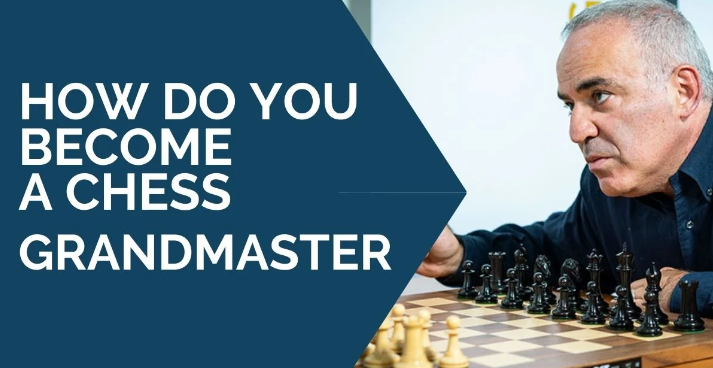
Becoming a chess grandmaster is a remarkable achievement that requires immense dedication, talent, and years of rigorous training. The title of grandmaster (GM) is the highest accolade in the sport of chess, awarded to the world’s elite players who have demonstrated exceptional skill and strategic prowess.
Reaching the grandmaster level is a challenging path that demands unwavering commitment and a deep passion for the game. In this comprehensive guide, we will explore the key steps and strategies aspiring players can adopt to embark on their journey towards chess greatness.
Mastering the Fundamentals
The foundation for becoming a grandmaster begins with a solid understanding of the game’s basic principles and mechanics. This includes:
Learning the rules of chess: Familiarize yourself with the movements of each piece, the objective of the game, and the concepts of check, checkmate, and castling.
Studying opening theory: Develop a robust repertoire of openings that you can use to gain an early advantage or neutralize your opponent’s plans.
Developing tactical abilities: Hone your skills in recognizing and executing tactical motifs such as forks, pins, skewers, and discovered attacks.
Enhancing positional understanding: Grasp the importance of pawn structures, piece placement, and the concept of space control.
Improving endgame proficiency: Master the key endgame positions and techniques to convert winning positions and salvage drawn positions.
Practicing calculation and visualization: Train your ability to calculate variations several moves ahead and visualize the potential consequences of your moves.
Consistent and deliberate practice of these fundamental skills is essential for building a strong chess foundation, which will serve as the springboard for your journey towards grandmaster status.
Intensive Training and Competition
To reach the grandmaster level, aspiring players must engage in rigorous and strategic training regimens that target specific areas of improvement. This includes:
Studying chess literature: Immerse yourself in classic chess books, modern opening theory manuals, and tactical and positional analysis texts to expand your chess knowledge.
Analyzing master-level games: Carefully study the games of renowned grandmasters, understanding their decision-making processes and the underlying principles behind their moves.
Engaging in regular practice games: Play as many games as possible, both online and over-the-board, against opponents of varying skill levels to hone your practical skills.
Participating in tournaments: Competing in local, regional, and national chess tournaments will provide you with valuable experience and opportunities to gain official chess ratings.
Seeking coaching and mentorship: Consider working with an experienced chess coach or grandmaster who can provide personalized guidance, feedback, and strategic insights to accelerate your progress.
Developing a strong work ethic: Successful grandmasters are known for their unwavering dedication and the ability to endure long hours of intensive study and practice. Cultivate the discipline to maintain a consistent training regimen.
Leveraging modern technology: Utilize chess software, databases, and online resources to streamline your studies, analyze your games, and stay up-to-date with the latest chess developments.
As you progress through the various stages of your chess development, it is crucial to set incremental goals, participate in tournaments to gain experience and ratings, and continuously strive to improve your overall game.
Psychological and Emotional Resilience
Becoming a grandmaster not only requires exceptional chess skills but also a strong mental and emotional foundation. Aspiring players must develop the following qualities:
Persistence and determination: The journey to grandmaster status is long and arduous, often filled with setbacks and challenges. Cultivate the resilience to bounce back from losses and maintain a positive, growth-oriented mindset.
Emotional control: Chess is a game of intense concentration and decision-making under pressure. Learn to manage your emotions, remain calm under stress, and avoid tilting or making rash decisions.
Adaptability and flexibility: The chess landscape is constantly evolving, with new theories, openings, and strategies emerging. Embrace a willingness to adapt your playstyle and repertoire to stay competitive.
Analytical and problem-solving skills: Grandmasters excel at breaking down complex positions, evaluating multiple options, and making sound, strategic decisions. Develop your analytical thinking and problem-solving abilities.
Dedication and self-discipline: Achieving the grandmaster title requires thousands of hours of focused training and study. Cultivate the self-discipline to maintain a consistent and rigorous training regimen.
Healthy lifestyle habits: Ensure you maintain a balanced lifestyle, with proper nutrition, regular exercise, and adequate rest to support your cognitive performance and physical well-being.
By nurturing these psychological and emotional qualities, aspiring players can create a solid foundation that will empower them to overcome the challenges and setbacks that inevitably arise on the path to chess greatness.
Becoming a chess grandmaster is a monumental achievement that requires an unwavering commitment to the game, a deep passion for its strategic complexities, and a relentless drive to excel. The journey is paved with countless hours of deliberate practice, intensive study, and competitive experience.
As you embark on this path, remember that the road to grandmaster status is not a linear one. It is filled with ups and downs, successes and failures, all of which contribute to your growth and development as a chess player. Embrace the challenges, learn from your mistakes, and remain steadfast in your pursuit of chess mastery.
Surround yourself with a support network of coaches, mentors, and fellow chess enthusiasts who can provide guidance, encouragement, and valuable insights. Continuously seek out opportunities to learn, compete, and push the boundaries of your chess abilities.
Ultimately, the pursuit of the grandmaster title is not just about achieving a prestigious accolade; it is about the personal growth, the intellectual stimulation, and the deep sense of accomplishment that comes with mastering one of the world’s most captivating and enduring games. Embrace the journey, stay committed, and let your passion for chess be your guide towards the pinnacle of chess excellence.
